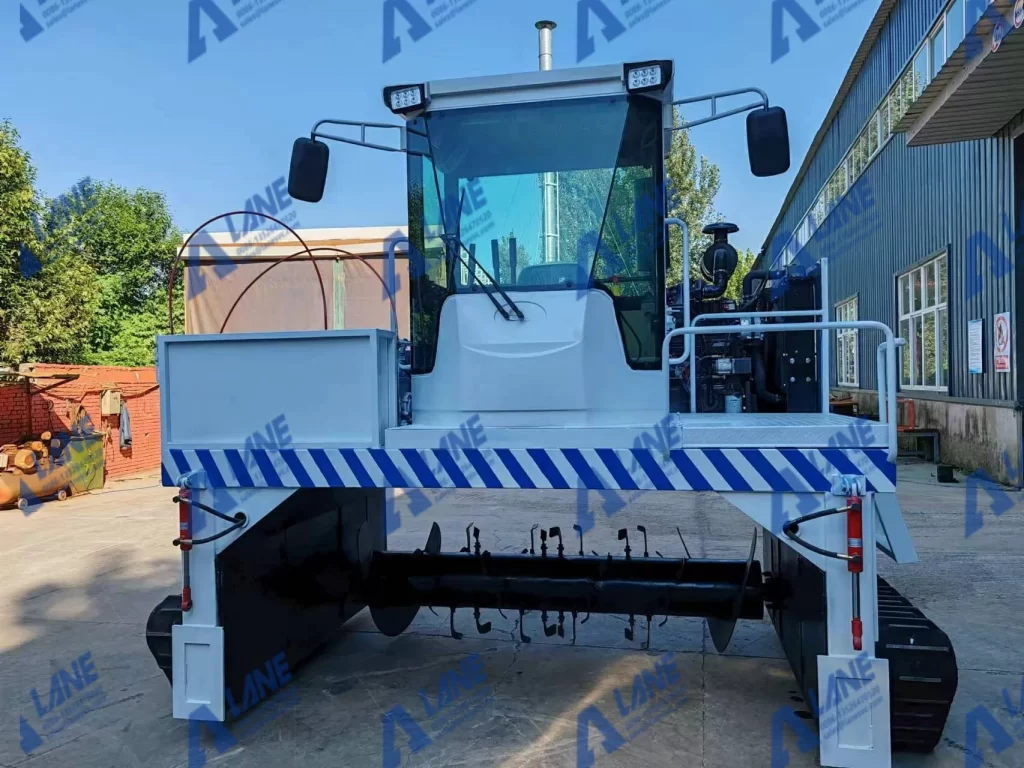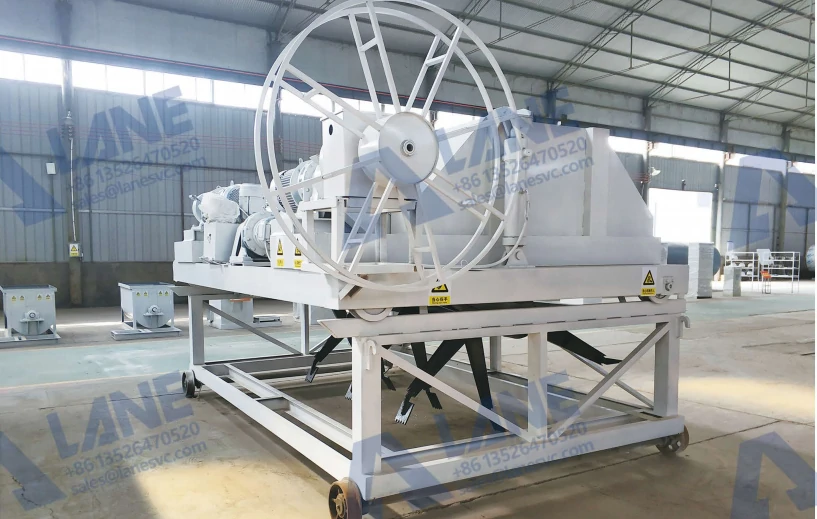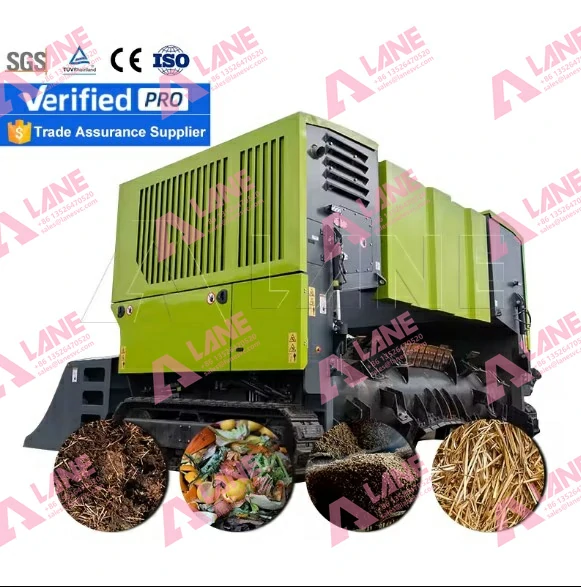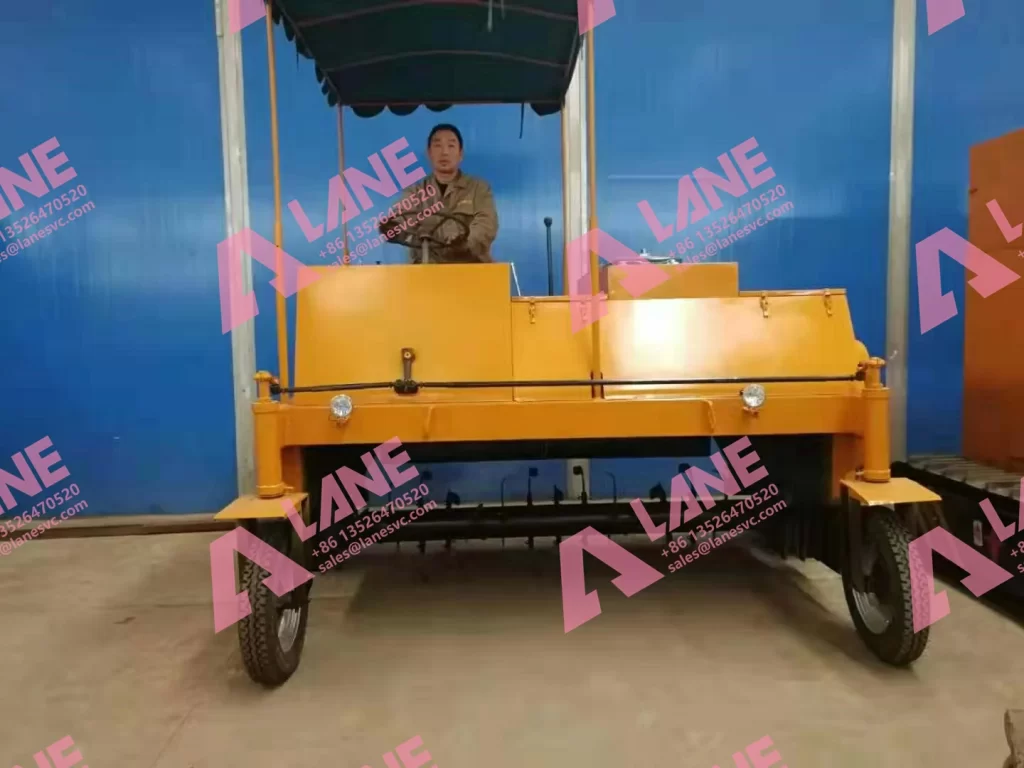The compost turner machine for agricultural waste composting is no longer a niche technology; it has become a cornerstone of modern sustainable agriculture. As farms, cooperatives, and agricultural enterprises continue to explore effective ways to handle crop residues, animal manure, and food processing waste, composting has emerged as a proven strategy. At the heart of this process, the compost turner enhances microbial activity, accelerates decomposition, and ensures that the final product is nutrient-rich. For stakeholders committed to environmental management and profitability, adopting advanced compost turners represents both a technological leap and a strategic investment.
The Growing Importance of Compost Turner Machines in Agriculture
Composting has been practiced for centuries, but the scale and efficiency demanded by today’s agricultural sector require far more than traditional manual or static pile methods. A compost turner machine for agricultural waste composting enables producers to handle large volumes of waste while maintaining optimal oxygen levels, temperature, and moisture content within compost piles.
Sustainability driver: Reduces methane emissions from unmanaged organic waste.
Nutrient recovery: Transforms waste streams into a valuable soil amendment.
Circular economy alignment: Supports a closed-loop model where waste becomes a resource.
This transformation aligns perfectly with global goals for carbon reduction and soil health regeneration.
How a Compost Turner Machine for Agricultural Waste Composting Works
A compost turner machine for agricultural waste composting is designed to accelerate the natural decomposition process by providing the optimal conditions of oxygen, temperature, and moisture. Unlike static compost piles that often face problems such as uneven fermentation or unpleasant odors, a compost turner ensures that every layer of organic material is treated uniformly.
Step 1: Collection and Piling of Agricultural Waste
The process begins with gathering agricultural residues such as livestock manure, crop straw, fruit and vegetable waste, and other biodegradable materials. These are arranged into windrows (long rows of compost piles) or placed inside fermentation grooves, depending on the machine type.
Step 2: Aeration and Mixing
When the compost turner machine for agricultural waste composting passes over or through the pile, its blades or paddles lift and tumble the material. This motion breaks up clumps, ensures oxygen is evenly distributed, and prevents the development of anaerobic zones that can slow down decomposition.
Step 3: Temperature Regulation
As microbes break down organic matter, the pile generates heat. By turning the compost regularly, the machine helps maintain an optimal temperature range (typically 55–65°C). This ensures faster decomposition and effective pathogen elimination, producing a safe and stable compost product.
Step 4: Moisture Control
Efficient composting requires moisture content between 50–60%. The turning action of the compost machine helps release excess water if the pile is too wet, while also allowing operators to add water if the material is too dry. This balance ensures that microbial activity continues without interruption.
Step 5: Uniform Maturation
Repeated turning over several weeks produces a well-aerated, homogeneous mixture. By the end of the cycle, agricultural waste is transformed into a nutrient-rich, stable compost that can be directly applied to fields, improving soil fertility and reducing reliance on chemical fertilizers.
The working principle of a compost turner machine for agricultural waste composting highlights its role as both a sustainability tool and a productivity booster. By reducing processing time, minimizing odor, and delivering consistent results, it enables farmers and agribusinesses to turn waste into value efficiently.
Types of Compost Turner Machines for Agricultural Waste Composting
Due to the diverse requirements of agricultural operations, various types of compost turners have been developed. Each model is customized for specific working conditions, composting methods, and production scales. The following are the four most commonly used categories.
(1) Crawler Type Compost Turner
The crawler type compost turner is designed for heavy-duty operations. With its track-based design, it moves steadily over compost piles, ensuring uniform turning and aeration. It is well-suited for large-scale livestock manure composting and crop residue management, especially where the terrain is uneven.

(2) Groove Type Compost Turner
Built to operate inside fermentation trenches, the groove type compost turner is ideal for facilities with limited outdoor space. It provides continuous and automated turning within concrete lanes, making it highly efficient for long-term, high-capacity composting projects.

(3) Remote-Control Crawler Compost Turner
This advanced model combines the stability of the crawler design with remote operation technology, allowing operators to manage composting safely and conveniently. Particularly beneficial in high-temperature or biohazard-sensitive environments, the remote-control crawler turner reduces labor risks while maintaining excellent efficiency.

The wheeled compost turner is compact, highly maneuverable, and designed for flexibility. It works well for small- to medium-sized farms, community composting facilities, or projects where rapid movement between compost rows is necessary. Its affordability and ease of operation make it a popular entry-level choice.

Comparative Table of Compost Turner Machines
| Type | Best Application | Mobility & Operation | Capacity & Scale | Key Advantage |
| Crawler Type Compost Turner | Large livestock farms, crop residue sites | Track-based, stable on rough ground | High volume, industrial scale | Heavy-duty, reliable for continuous operation |
| Groove Type Compost Turner | Fermentation trench systems, urban plants | Fixed rail system within trenches | High capacity, space-saving | Continuous, automated composting |
| Remote-Control Crawler Turner | Hazard-sensitive or large-scale facilities | Remote-controlled crawler tracks | High volume, industrial scale | Safer operation, reduced labor risks |
| Wheeled Compost Turner | Small to medium farms, community projects | Wheel-based, fast and flexible | Moderate capacity | Affordable, easy to operate, maneuverable |
Selecting the most suitable compost turner machine for agricultural waste composting depends on farm size, available space, and operational goals. Whether it is the crawler type for rugged large-scale projects, the groove type for trench-based systems, the remote-control model for safer operations, or the wheeled turner for flexible small to medium setups, each option serves a distinct purpose.
LANE offers tailor-made compost turners with durable design, reliable performance, and after-sales support to ensure long-term efficient operation. By integrating advanced engineering technology with proven experience, we assist agricultural producers in converting waste into high-quality compost and achieving the highest production efficiency.
Benefits Beyond Waste Reduction
While the primary role of a compost turner machine is to handle organic residues, its impact extends much further. Investing in a compost turner machine goes beyond solving waste management challenges. The benefits ripple outward to agronomy, business, and ecology:
Enhanced soil fertility: Compost enriches soils with organic matter, boosting crop yields.
Reduced chemical inputs: Farmers can cut back on synthetic fertilizers, lowering costs.
Revenue potential: High-quality compost can be sold as a marketable product.
Regulatory compliance: Composting helps agribusinesses meet waste disposal regulations.
Carbon credit opportunities: Compost projects may qualify for sustainability certifications or carbon markets.
LANE’s Expertise in Compost Turner Solutions
LANE has established itself as a trusted partner for modern composting operations worldwide. Our compost turner machines for agricultural waste composting are designed with precision engineering and customer-centric service:
Robust design: Durable frames and wear-resistant components extend service life.
Energy efficiency: Optimized hydraulic and power systems minimize fuel or electricity consumption.
Customizable features: Adjustable working widths and depths for different materials.
Service excellence: From installation to operator training, LANE ensures clients maximize ROI.
What sets LANE apart is not only the equipment, but also the holistic approach: project planning, integration with other organic fertilizer production lines, and long-term technical support.
Market Trends and the Future of Composting
Global agricultural policy increasingly supports sustainable waste management practices. Composting, backed by reliable machinery, is expected to grow at double-digit rates in the coming decade. The adoption of a compost turner machine for agricultural waste composting positions agribusinesses ahead of regulatory changes and consumer demands for greener products.
Emerging trends include:
Integration of IoT sensors for real-time compost monitoring.
Hybrid models combining renewable energy sources
Modular composting units for decentralized farming clusters.
Stronger market incentives for certified organic compost.
LANE is actively developing innovations that merge traditional composting processes with digital technologies, ensuring clients remain future-ready.
Practical Applications Across Industries
The scope of compost turner machines extends beyond farms:
Dairy and livestock operations: Converting manure into pathogen-free compost.
Horticulture and landscaping: Producing compost tailored for nurseries or greenhouses.
Food processing plants: Transforming organic by-products into soil amendments.
Municipal solid waste facilities: Reducing landfill burden through organized composting.
In each of these cases, the machine’s ability to standardize and accelerate the composting process ensures both environmental compliance and economic benefit.
A Vision for Agriculture’s Next Chapter
The future of farming is being reshaped by innovation, sustainability, and efficiency. Traditional practices that once relied heavily on chemical inputs are gradually giving way to smarter, eco-friendly solutions. At the heart of this transformation lies the commitment to recycle agricultural residues, reduce waste, and restore soil health through organic methods.
One critical technology enabling this transition is the compost turner machine for agricultural waste composting, which allows farmers to convert crop residues and livestock manure into high-quality organic compost. By integrating such machines into everyday agricultural operations, producers not only reduce environmental pollution but also create a closed-loop system where waste becomes a resource.
As global demand for food grows, agricultural enterprises will need tools that balance productivity with ecological responsibility. The compost turner machine for agricultural waste composting represents exactly this balance—delivering efficiency, cost savings, and long-term soil enrichment. With companies like LANE providing advanced equipment and comprehensive support, the next chapter of agriculture is poised to be greener, more resilient, and deeply sustainable.
For more details, please feel free to contact us.
Henan Lane Heavy Industry Machinery Technology Co., Ltd.
Email: sales@lanesvc.com
Contact number: +86 13526470520
Whatsapp: +86 13526470520